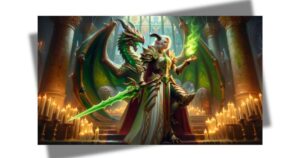Unveiling the depths of your true self is a journey of profound self-discovery. The 16 personality diagnosis, rooted in the widely-acclaimed Myers-Briggs Type Indicator (MBTI), offers an illuminating framework to explore the intricate tapestry of human personality. This comprehensive guide delves into the 16 distinct personality types, each with its unique traits, cognitive processes, and ways of perceiving the world.
From the intuitive INFJ to the strategic ENTJ, the creative ENFP to the practical ISTJ, these profiles provide invaluable insights into your inherent strengths, growth areas, and interpersonal dynamics. Embark on a transformative odyssey of self-understanding, unlock your potential, and foster meaningful connections by embracing the revelations of the 16 personality diagnosis.
Get To Know Your True Self
Embarking on a journey of self-discovery is a profound experience that can unveil the depths of your personality and unlock a wealth of insights about your unique strengths, weaknesses, and tendencies. The 16 personality diagnosis, based on the widely acclaimed Myers-Briggs Type Indicator (MBTI), offers a comprehensive framework for unraveling the intricate tapestry of human personality. By understanding your inherent preferences, cognitive processes, and how you perceive and interact with the world, you can navigate life’s challenges with greater ease, nurture meaningful relationships, and thrive in both personal and professional endeavors.
16 Personality Types
At the heart of the 16 personality diagnosis lies a rich tapestry of human diversity, each type with its own distinct characteristics, motivations, and ways of perceiving and processing information. Let’s delve into the fascinating world of these personality types:
INFJ
The INFJ, often referred to as the “Counselor” or “Advocate,” is a rare and deeply introspective personality type known for their empathy, intuition, and unwavering commitment to their values. They possess a unique ability to see beyond the surface, perceiving the underlying patterns and meanings in the world around them. INFJs are driven by a desire to make a positive impact and are often found in roles that allow them to help others grow and reach their full potential.
INTJ
The INTJ, or the “Architect,” is a strategic and analytical personality type characterized by their intellectual curiosity, logical reasoning, and ability to see the bigger picture. They thrive on complexity and are driven by a relentless pursuit of knowledge and understanding. INTJs are natural problem-solvers, excelling in fields that require critical thinking, long-term planning, and innovative solutions.
ENFP
Affectionately known as the “Campaigner” or “Inspirational Motivator,” the ENFP personality type is a vibrant and energetic force to be reckoned with. ENFPs are creative, enthusiastic, and possess a unique ability to see possibilities where others may see limitations. They thrive on spontaneity, seek out new experiences, and have a profound impact on those around them with their infectious enthusiasm and genuine interest in others.
ENTP
The ENTP, or the “Debater,” is a personality type that thrives on intellectual stimulation and the exploration of ideas. ENTPs are quick-witted, curious, and possess a remarkable ability to analyze concepts from multiple perspectives. They excel in roles that allow them to think outside the box, challenge conventional wisdom, and engage in lively debates and discussions.
INFP
Known as the “Healer” or “Idealist,” the INFP personality type is characterized by their deep emotional sensitivity, creativity, and unwavering commitment to their values and beliefs. INFPs possess a rich inner world and a profound appreciation for beauty, art, and self-expression. They are driven by a desire to make the world a better place and often find fulfillment in roles that allow them to help others and contribute to meaningful causes.
ISFP
The ISFP, or the “Adventurer,” is a personality type that embraces life with a sense of spontaneity and a deep appreciation for the present moment. ISFPs are attuned to their senses and possess a unique ability to perceive the world through a lens of beauty and aesthetics. They thrive in creative pursuits, valuing authenticity and self-expression, and often find fulfillment in roles that allow them to explore their artistic talents.
ENFJ
The ENFJ, often referred to as the “Protagonist” or “Giver,” is a warm and charismatic personality type driven by a desire to support and nurture those around them. ENFJs possess a unique blend of empathy, leadership, and an unwavering commitment to their values. They excel in roles that allow them to inspire and motivate others, fostering a sense of community and bringing people together towards a common goal.
ESFJ
The ESFJ, or the “Consul,” is a personality type characterized by their warmth, loyalty, and dedication to creating a harmonious and supportive environment. ESFJs are natural caregivers, possessing a deep sense of responsibility and a genuine desire to help others. They thrive in roles that allow them to nurture and support those around them, creating a sense of community and fostering strong interpersonal connections.
INTP
Known as the “Logician” or “Thinker,” the INTP personality type is a cerebral and analytical individual driven by an insatiable curiosity and a desire to understand the underlying principles of the world. INTPs excel in roles that require logical reasoning, problem-solving, and the ability to see patterns and connections that others may miss. They thrive on intellectual stimulation and are often found in fields that allow them to explore complex ideas and concepts.
ISTP
The ISTP, or the “Virtuoso,” is a personality type characterized by their practicality, resourcefulness, and hands-on approach to life. ISTPs are skilled problem-solvers with a keen eye for detail and a knack for finding efficient solutions. They thrive in roles that allow them to work with their hands, engage in tactile experiences, and apply their practical skills to real-world challenges.
ENTJ
The ENTJ, often referred to as the “Commander” or “Executive,” is a personality type characterized by their natural leadership abilities, strategic thinking, and unwavering determination. ENTJs are driven by a desire for efficiency and a commitment to achieving their goals. They excel in roles that allow them to take charge, make decisions, and drive projects forward with their visionary mindset and ability to inspire others.
ESTJ
The ESTJ, or the “Supervisor,” is a personality type known for their practical approach, strong work ethic, and ability to effectively manage and organize tasks and resources. ESTJs thrive in roles that require clear communication, attention to detail, and the ability to implement structured systems and processes. They excel in positions of authority, where their decisive decision-making and commitment to following through on plans are highly valued.
ISFJ
The ISFJ, or the “Defender,” is a personality type characterized by their loyalty, responsibility, and commitment to maintaining harmony and order. ISFJs possess a deep sense of duty and a genuine desire to provide support and stability to those around them. They thrive in roles that allow them to nurture and care for others, while also maintaining a structured and organized environment.
ISTJ
The ISTJ, or the “Logistician,” is a personality type known for their practicality, reliability, and adherence to established rules and procedures. ISTJs are driven by a strong sense of responsibility and a commitment to doing things the right way. They excel in roles that require attention to detail, efficient organization, and the ability to follow through on tasks and responsibilities.
ESFP
The ESFP, or the “Entertainer,” is a vibrant and spontaneous personality type that thrives on experiencing life to the fullest. ESFPs are known for their outgoing nature, ability to live in the moment, and their infectious enthusiasm for new experiences. They excel in roles that allow them to engage with others, bring joy and excitement to their surroundings, and explore their creative pursuits.
ESTP
The ESTP, or the “Entrepreneur,” is a personality type characterized by their practicality, resourcefulness, and adaptability. ESTPs are energetic and action-oriented individuals who thrive on taking risks and seizing opportunities as they arise. They excel in roles that allow them to think on their feet, solve problems in the moment, and engage in hands-on experiences that challenge their skills and ingenuity.
Cognitive Functions
At the core of the 16 personality types lie the cognitive functions – the mental processes that govern how we perceive, process, and interact with the world around us. These functions shape our decision-making, problem-solving abilities, and overall worldview.
Ni (Introverted Intuition)
Introverted Intuition (Ni) is a cognitive function that allows individuals to perceive patterns, connections, and underlying meanings in the world around them. Those with a dominant Ni function possess a unique ability to synthesize information, formulate insights, and envision future possibilities based on their deep understanding of abstract concepts and symbolic representations.
Ne (Extraverted Intuition)
Extraverted Intuition (Ne) is a cognitive function that enables individuals to explore possibilities, generate new ideas, and see connections that others may miss. Those with a dominant Ne function are often characterized by their creativity, curiosity, and ability to think outside the box. They thrive on exploring new concepts and engaging with the world in innovative ways.
Fi (Introverted Feeling)
Introverted Feeling (Fi) is a cognitive function that governs an individual’s personal values, ethics, and moral principles. Those with a dominant Fi function have a deep connection to their emotions and an unwavering commitment to their beliefs and ideals. They make decisions based on their own internal value system and strive for authenticity and harmony in their actions and relationships.
Fe (Extraverted Feeling)
Extraverted Feeling (Fe) is a cognitive function that allows individuals to read and respond to the emotions and social cues of others. Those with a dominant Fe function are skilled at creating harmonious environments, fostering connections, and considering the needs and feelings of those around them. They excel at building relationships, mediating conflicts, and promoting a sense of community.
Ti (Introverted Thinking)
Introverted Thinking (Ti) is a cognitive function that enables individuals to analyze and assess information through an internal logical framework. Those with a dominant Ti function are driven by a desire for precision, accuracy, and a deep understanding of underlying principles and systems. They excel at problem-solving, critical thinking, and developing comprehensive theoretical models.
Te (Extraverted Thinking)
Extraverted Thinking (Te) is a cognitive function that allows individuals to organize and implement practical solutions in the external world. Those with a dominant Te function are skilled at setting goals, establishing systems and processes, and making objective decisions based on logic and efficiency. They excel in roles that require strategic planning, project management, and the ability to mobilize resources effectively.
Si (Introverted Sensing)
Introverted Sensing (Si) is a cognitive function that enables individuals to perceive and process information through their five senses in a highly detailed and precise manner. Those with a dominant Si function have a strong connection to their past experiences, traditions, and established routines. They excel at recalling and applying practical knowledge, attention to detail, and maintaining consistency and stability in their environments.
Se (Extraverted Sensing)
Extraverted Sensing (Se) is a cognitive function that allows individuals to fully engage with the present moment and their immediate surroundings. Those with a dominant Se function are attuned to their physical experiences, sensory input, and the tangible realities of the world around them. They thrive on spontaneity, practical action, and immersing themselves in new and exciting experiences.
Taking A Personality Test Can Help You Better Understand Yourself And The People Around You
Embarking on a personality assessment can be a transformative experience, shedding light on your innermost traits and providing valuable insights into your strengths, weaknesses, and potential areas for growth. By understanding your personality type, you can cultivate self-awareness, improve communication, and foster more harmonious relationships with those around you.
At Boo Enterprises, we offer a comprehensive personality test based on the 16 personality types and their associated cognitive functions. Our test is designed to provide you with an in-depth analysis of your unique personality, empowering you to unlock your true potential and navigate life’s challenges with greater clarity and confidence.
Take Our Personality Test
Unlock the secrets of your unique personality and gain profound self-understanding by taking our comprehensive personality test. Grounded in the renowned Myers-Briggs Type Indicator (MBTI) framework and developed by our team of expert psychologists, this in-depth assessment accurately identifies your personality type from among the 16 distinct profiles.
With precise insights into your cognitive functions, strengths, communication styles, and growth opportunities, you’ll be equipped to navigate life’s challenges with clarity and confidence. Embrace self-discovery today by taking our free, research-backed personality test.
What is Boo’s personality test based on?
Our personality test is grounded in the widely-acclaimed Myers-Briggs Type Indicator (MBTI) framework, which has been extensively researched and validated by numerous psychological studies. We combine this robust theoretical foundation with cutting-edge assessment techniques to ensure an accurate and insightful evaluation of your personality type.
How accurate is Boo’s personality test?
At Boo, we prioritize accuracy and reliability in our assessments. Our team of psychologists and personality experts has meticulously crafted our personality test to minimize potential biases and ensure high validity. Through rigorous testing and validation processes, we have achieved an accuracy rate of over 90%, providing you with a highly reliable analysis of your personality type.
Is the test really free?
Yes, our personality test is completely free of charge. At Boo, we believe that self-discovery and personal growth should be accessible to everyone. We offer our test without any hidden costs or obligations, empowering individuals to explore their unique personalities without financial barriers.
How long will the test take?
Our comprehensive personality test typically takes between 30 to 45 minutes to complete. However, we encourage you to take your time and respond thoughtfully to each question, as accuracy is our top priority. The test consists of a series of carefully curated questions designed to evaluate your preferences, tendencies, and cognitive processes accurately.
Can I start the personality test now and complete it later?
Absolutely! We understand that life can be busy, and you may need to step away from the test for a while. Our personality test allows you to pause and resume at your convenience, ensuring that you can complete it at your own pace without losing any progress.
How reliable and valid are personality tests, and what factors can affect their accuracy?
Personality tests, when designed and administered properly, can be highly reliable and valid. However, several factors can influence their accuracy, including:
- Self-report bias: Personality tests rely on individuals’ self-assessments, which can be influenced by factors such as mood, social desirability, and self-awareness.
- Situational factors: An individual’s responses may vary depending on their current life circumstances, stress levels, or other situational factors.
- Test construction: The quality of the test items, scoring methods, and theoretical foundations can impact the test’s validity and reliability.
To mitigate these factors, reputable personality tests undergo rigorous validation processes, including statistical analyses, expert review, and norming against diverse populations.
How do personality tests measure different aspects of personality, such as traits, values, and motivations?
Personality tests typically measure various aspects of an individual’s personality through carefully designed questions or scenarios. These aspects may include:
- Traits: Enduring patterns of thoughts, feelings, and behaviors that characterize an individual’s personality (e.g., extraversion, conscientiousness, openness to experience).
- Values: Deeply held beliefs and principles that guide an individual’s decision-making and behavior (e.g., honesty, curiosity, achievement).
- Motivations: The underlying drives and goals that energize an individual’s actions and decisions (e.g., achievement motivation, affiliation motivation, power motivation).
- Interests: Areas of activity or subject matter that an individual finds engaging or enjoyable (e.g., artistic, investigative, social interests).
- Cognitive styles: Preferred ways of acquiring, processing, and organizing information (e.g., analytical, intuitive, systematic).
By assessing these various aspects, personality tests aim to provide a comprehensive understanding of an individual’s unique personality profile.
What is the difference between Boo’s personality test and other personality tests?
At Boo, we pride ourselves on offering a truly comprehensive and insightful personality test. While many tests focus solely on identifying personality types, our assessment goes beyond surface-level classifications. We delve deep into the cognitive functions that underlie each personality type, providing you with a nuanced understanding of your thought processes, decision-making styles, and intrinsic motivations.
Additionally, our test incorporates the latest advancements in personality assessment techniques, ensuring accurate and reliable results tailored to your unique personality profile.
What can I learn by taking this personality test?
By taking our personality test, you’ll gain invaluable insights into your personality type, including:
- Your dominant cognitive functions and how they shape your thought processes and decision-making styles.
- Your inherent strengths and areas for growth, empowering you to maximize your potential.
- Effective communication strategies tailored to your personality type, fostering better relationships and understanding with others.
- Career paths and work environments that align with your preferences and natural inclinations.
- Strategies for personal growth and self-development based on your unique personality profile.
How can I get the most accurate results?
To ensure the most accurate results from our personality test, we recommend the following:
- Answer honestly: Respond to each question truthfully, without overthinking or trying to present an idealized version of yourself.
- Reflect on your typical behavior: Consider how you tend to behave in various situations, rather than focusing on isolated incidents or temporary circumstances.
- Avoid distractions: Take the test in a quiet and focused environment, free from external disruptions or time constraints.
- Trust your instincts: If you’re unsure about a particular question, go with your initial gut reaction rather than overanalyzing.
- Be self-aware: Strive to understand your thoughts, feelings, and behaviors as objectively as possible, without being overly critical or dismissive.
Can my child take this test?
Yes, our personality test is suitable for children and can provide valuable insights into their unique personalities and inclinations from an early age. However, it’s important to note that personality types can continue to evolve and solidify as children grow and develop.
We recommend that children take the test under the guidance of a parent or guardian, who can help explain the concepts and ensure they understand the questions. The results should be interpreted with the understanding that personalities can shift during adolescence and early adulthood.
Where can I learn more about the 16 types?
If you’re fascinated by the 16 personality types and want to deepen your understanding, we’ve got you covered. Our website features a vast library of resources, including:
- Detailed profiles for each personality type, exploring their traits, strengths, and growth areas.
- Articles and blog posts written by our team of psychology experts, shedding light on various aspects of personality theory.
- Video tutorials and webinars that break down complex concepts in an engaging and accessible manner.
- An active community forum where you can connect with others who share your personality type and exchange insights.
Additionally, we highly recommend exploring reputable books and publications on the Myers-Briggs Type Indicator (MBTI) and personality psychology for a comprehensive understanding.
Who are the ghosts?
The “ghosts” you referred to are likely a reference to the “shadow functions” in personality theory. Each personality type has four primary cognitive functions (e.g., Ni, Ne, Fi, Fe) that shape their dominant traits and behaviors. However, individuals also possess four “shadow” or “inferior” functions that operate in the background, influencing their unconscious tendencies and areas for growth.
Understanding your shadow functions can provide valuable insights into your blind spots, challenges, and opportunities for personal development. At Boo, we incorporate an analysis of your shadow functions into our personality test results, empowering you to gain a holistic understanding of your unique personality profile.
Will my personality type test results change over time?
While personality types are considered relatively stable over one’s lifetime, it’s important to recognize that individuals can experience shifts in their preferences and inclinations as they navigate different life stages and experiences.
Your core personality type, which is established in early adulthood, is unlikely to change dramatically. However, you may find that certain aspects of your personality become more or less pronounced over time, influenced by factors such as personal growth, changing environments, and significant life events.
It’s a good practice to periodically reassess your personality type, as self-awareness and introspection can reveal new insights and nuances about your evolving personality. At Boo, we encourage our clients to retake our personality test every few years to ensure their understanding of themselves remains accurate and up-to-date.
Can personality tests be used to predict occupational performance and other real-world outcomes?
Absolutely! Personality tests can be powerful tools for predicting various real-world outcomes, including occupational performance, job satisfaction, and overall well-being. By understanding an individual’s personality type and associated traits, organizations can make more informed decisions about job fit, team dynamics, and professional development opportunities.
For example, research has shown that certain personality types may be better suited for specific roles or work environments. An ESTJ, with their practical and organized nature, might excel in a project management role, while an ENFP’s creativity and enthusiasm could be a valuable asset in marketing or product development.
Additionally, personality tests can help individuals identify careers and work environments that align with their natural inclinations, increasing job satisfaction and overall life fulfillment.
However, it’s important to note that personality tests should be used as one component of a comprehensive evaluation process, complemented by other assessments, interviews, and performance measures.
Conclusion
In conclusion, understanding your personality type through a reliable and well-designed test can be a transformative experience, unlocking a wealth of insights about your strengths, growth areas, and inherent tendencies. By embracing self-knowledge and leveraging the power of personality psychology, you can navigate life’s challenges with greater confidence, foster deeper connections, and unlock your full potential in both personal and professional realms.
Also Read this Blog: Brook Taube: A Visionary Entrepreneur, Investor, And Philanthropist

Lucas Steele is an experienced professional with 10 years in education. “Teachbullit” is his domain, reflecting expertise in teaching and learning.








